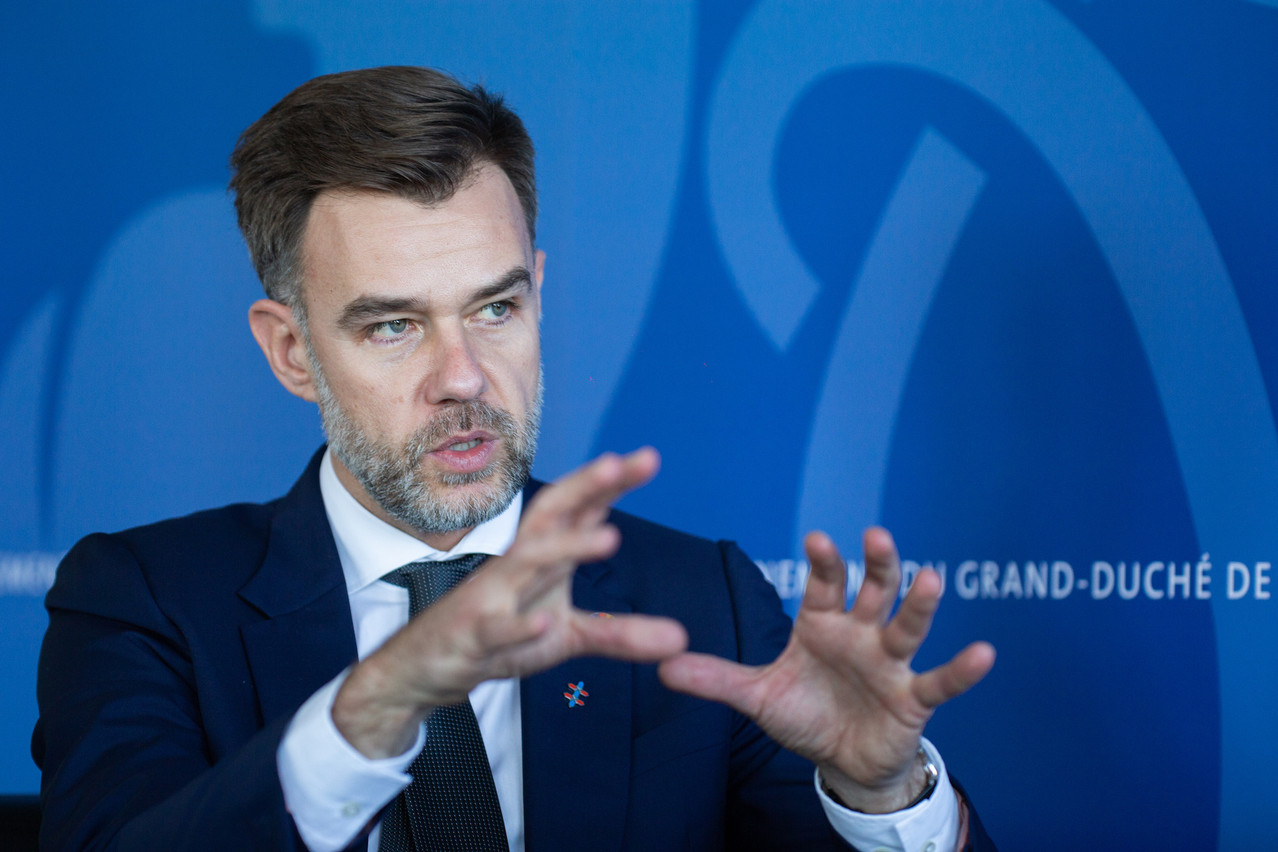"These billionaires travelling to the edge of space, I find it very childish, and that is certainly not what interests me most about developments in the sector!" When asked about Elon Musk, Jeff Bezos and Richard Branson, who compete with suborbital flights, Fayot says that, while he may not be identified as "the minister of space" as his predecessor, Etienne Schneider, was, he is "a space enthusiast.”
On Wednesday, Fayot followed in the footsteps of his predecessor. The economy minister was at that time in Rwanda, where he took advantage of the African Microfinance Week to sign a cooperation agreement with the Rwandan authorities.
This Saturday, he will go directly to Dubai and the Universal Expo at the head of an imposing Luxembourg delegation, which will show its know-how and make contacts in a region that also dreams of forging a destiny in space. A visit to the Luxembourg pavilion is planned for Sunday. While on Monday, the International Astronautical Congress in Dubai will take place and on Tuesday--a firework display of announcements.
Mr Fayot, how passionate are you about space?
Franz Fayot - I think there are some interesting things to do in this well-developing sector that has changed its focus a little over the years. Between the launch and the space mining initiative materialised in the 2017 law and today. We have now moved to a space resources strategy.
It is a very research and development intensive sector, a good match for a country that is going resolutely into a high-value niche sector.
With, on the one hand, technologies that will allow us to explore space better--first with the moon and, later, with the prospects of going to Mars--and with a whole series of companies active in observing what is happening on Earth from space. The use of this data will have many terrestrial uses, whether it is to combat global warming, maritime traffic, fishing, agriculture in developing countries, with a multitude of applications that will benefit the Earth.
Similarly, companies are developing dual-use technologies to use for space exploration and on Earth.
It is a very research and development intensive sector, a good match for a country that is resolutely going into a high-value niche sector. In this respect, ESRIC is a project with a lot of potential. It is also a sector that is of great interest to Luxembourg, where an ecosystem is being created, where substantial efforts are being made to remain at the head of the race, in terms of research, legislation or investments in companies through the investment funds in which we have co-invested. In the public eye, I may be less associated with this sector, but I really think it's an interesting sector that doesn't come out of nowhere. SES has given us credibility to build this initiative.
Do you feel that public opinion has a better understanding of investment in this sector? Your predecessor had to face criticism.
F.F.: With the reorientation of the sector, away from the focus on mining which had been the initial project, the strategy is better understood. Technology, satellites and other elements of space exploration will be able to provide real tools to solve our problems on Earth, starting with global warming. Those things that are closer to us and to our problems on Earth help to illustrate the usefulness of this sector with its enormous potential. Whatever we do, public investment is needed in every economic sector. I find it difficult to gauge public opinion, but I can believe that at the beginning it seemed too much like science fiction, far from us.
When Mr Schneider launched this initiative, he said that this Universal Expo would be the moment when everything would be in place in Luxembourg. Do you think that in Dubai you will be able to show everything you wanted to put in place, or do you have other ideas in mind?
F.F.: We will make a number of announcements in Dubai. But the main pillars are in place. There is the regulatory and legislative framework, with the space resources law that has just been passed and the interpretation of the Artemis agreement on 'outer space'. But there is also research, with ESRIC, the University of Luxembourg's chair on space, or what is happening at List. There are also investment funds oriented towards start-ups or innovative space companies.
And, finally, the promotion of the Luxembourg ecosystem to attract new companies is bearing fruit, since we have 70 companies active in this sector. This shows a real interest. We still have to work on it. ESRIC has just started and will grow in the years to come. We will have to build this space campus, that's planned. And it will be deployed. The main lines are there. When we talk about it with foreign policy makers or space agencies, our strategy is met with a certain appreciation because it is comprehensive and covers all aspects of what needs to be put in place.
This story was first published in French on . It has been translated and edited for Delano.
